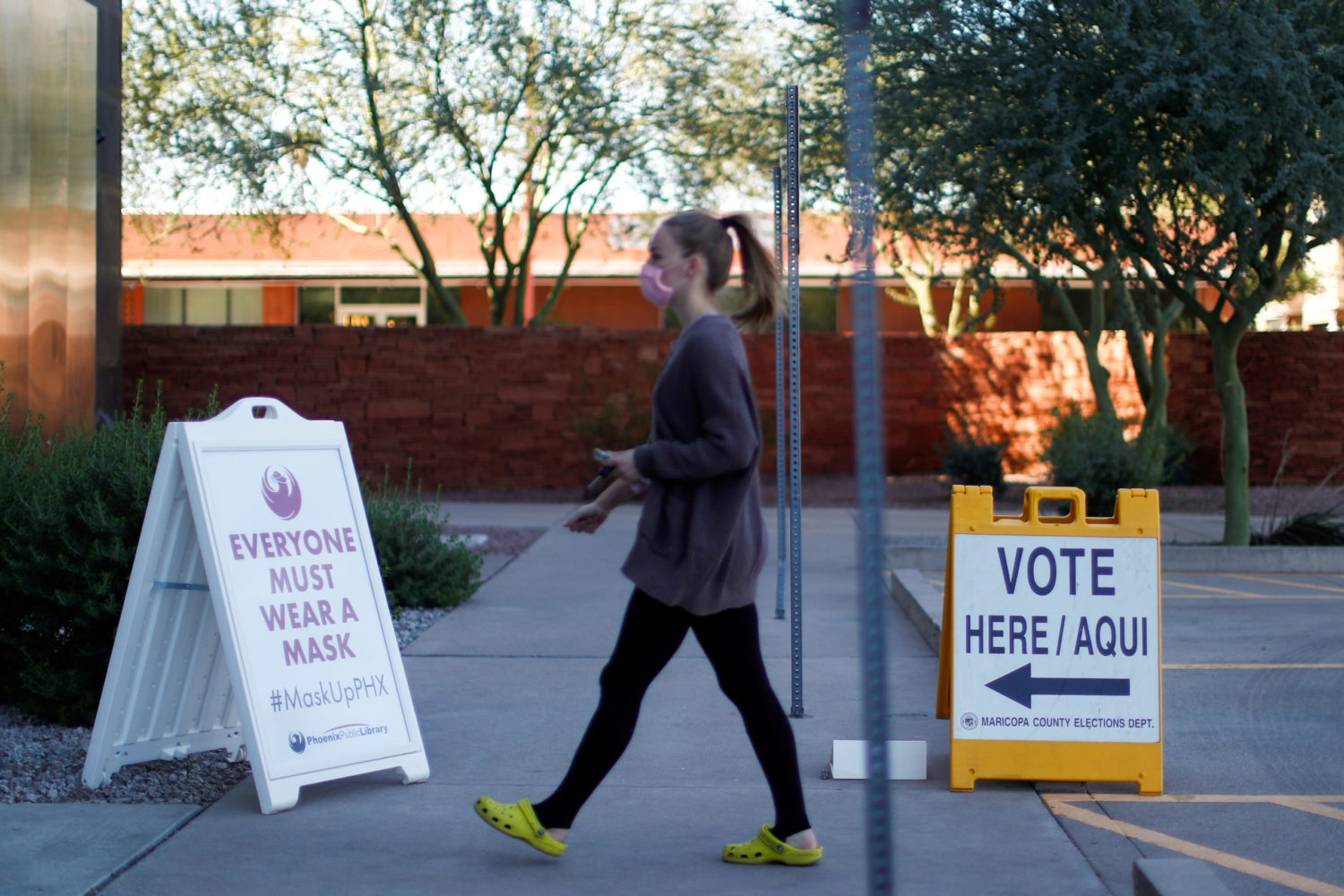
By Brad Brooks
(Reuters) -Texas Governor Greg Abbott on Tuesday signed a law imposing a series of voting restrictions – the latest such measure enacted in a Republican-led U.S. state – and civil rights groups immediately filed suit to challenge its legality.
During a signing ceremony in the East Texas city of Tyler, Abbott said the voting restrictions are intended to combat voter fraud, while critics contend they are aimed at making it harder for minorities who tend to back Democratic candidates to cast ballots.
Civil rights organizations sued a group of Texas election authorities in federal court in the state capital Austin. The plaintiffs said the law unduly burdens the right to vote in violation of the U.S. Constitution’s First Amendment and 14th Amendment, while also saying it is intended to limit minority voters’ access to the ballot box in violation of a federal law called the Voting Rights Act.
Marc Elias, a Democratic lawyer who spearheaded the party’s election legal efforts last year, represents the groups, which include the League of United Latin American Citizens, Voto Latino and the Texas Alliance for Retired Americans.
It is the latest in numerous laws passed this year in Republican-led states creating new barriers to voting following Republican former President Donald Trump’s false claims that the 2020 election was stolen from him through widespread voting fraud.
The new Texas law prohibits drive-through and 24-hour voting locations and adds new identification requirements for mail-in voting. It also restricts who can help voters requiring assistance because of language barriers or disabilities, prevents officials from sending out unsolicited mail-in ballot applications and empowers partisan poll-watchers.
The Texas measure won final approval in the Republican-controlled state legislature on Aug. 31 in a special legislative session. Passage came after dozens of Democratic lawmakers fled the state on July 12 to break the legislative quorum, delaying action for more than six weeks.
Abbott and other Texas Republicans have said that the measure balances election integrity with ease of voting.
“It ensures that every eligible voter will have the opportunity to vote,” Abbott said at the signing ceremony. “It does also, however, make sure that it is harder for people to cheat at the ballot box in Texas.”
Election experts have said voting fraud is rare in the United States. Democratic opponents of the Texas measure said Republican legislators during debate over the measure presented no evidence of widespread voter fraud.
President Joe Biden, a Democrat, has likened the voting restrictions enacted in Republican-led states to the so-called Jim Crow laws that once disenfranchised Black voters in Southern states. Democrats in the U.S. Congress have not mustered the votes to pass national voting rights legislation that would counter the new state laws.
Democrats and voting rights advocates have said that the Texas legislation, formally called SB1, disproportionately affects Black and Hispanic voters – important voting blocs for Democrats – a claim denied by its Republican backers.
“Our clients will not waste a minute in fighting against this,” said Ryan Cox, a senior staff attorney at the Texas Civil Rights Project. “We anticipate that numerous organizations and groups of lawyers are going to be challenging different provisions of SB1 for different reasons.”
(Reporting by Brad Brooks in Lubbock, Texas; Editing by Will Dunham)









